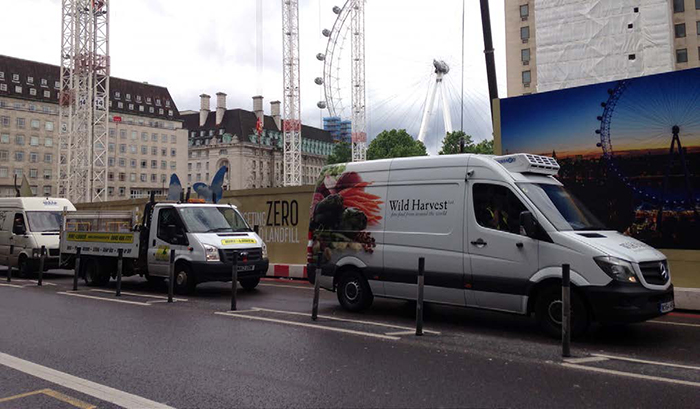United States - European Commission Urban Freight Twinning Initiative: Compendium of Project Summaries, Volume II
Overview of 2018-2019 International Urban Freight Roundtables
| Policy | Pilot | United States |
Freight Traffic Control 2050
"Freight Traffic Control 2050: transforming the energy demands of last-mile urban freight through collaborative logistics" (£1.4m) is looking at the transport and energy benefits that can be gained from the collaborative scheduling of parcel carrier rounds in London. The project involves the Business School along with University of Lancaster, University of Westminster, and University College London. Key objectives are to: a) investigate the collective transport and energy impacts of current parcel carrier activities; b) create a database to gather and interrogate collection and delivery schedules supplied by different carriers; c) use the data with a series of optimization algorithms to investigate the potential transport and energy benefits if carriers were to share deliveries and collections more equitably between them and develop tools to help visualize those benefits; and d) evaluate what business models would be needed to enable carriers to collaborate in this way.

Vans are the biggest growth mode in London related to the growth in the service sector and e-commerce.
Source: University of Southampton.
Project Types
Policy, Pilot.
Period of Performance
April 2016 - August 2019.
Project Site
London, United Kingdom.
Contact
Tom Cherrett
Professor of Logistics and Transport Management
University of Southampton
Southampton, United Kingdom
TJC3@soton.ac.uk
+44 (238) 059-4657
Topics Addressed
- Air quality/environment.
- Curbside delivery.
- Energy consumption.
- Land use interaction.
- Last mile delivery.
- Livability/quality of life.
- Logistics/distribution.
- Mobility/congestion.
- Modeling.
Expected Outcomes
- Demonstrating a portering (walking courier) operation in central London in which van drivers hand goods to porters for final delivery on foot (with scope for future use with autonomous vehicles and drones).
- Developing new vehicle routing and scheduling optimization solutions that take account of driving and walking components over the last mile.
- Understanding business-as-usual delivery operations (including driving and walking operations and vehicle stopping times) for last mile parcel operations.
- Demonstrating new ways to visualize and quantify the collective impacts of multi-parcel carrier operations across London to aid freight planning.
Stakeholder Involvement
TNT, Transport for London, and Gnewt Cargo were engaged in the project from the outset.